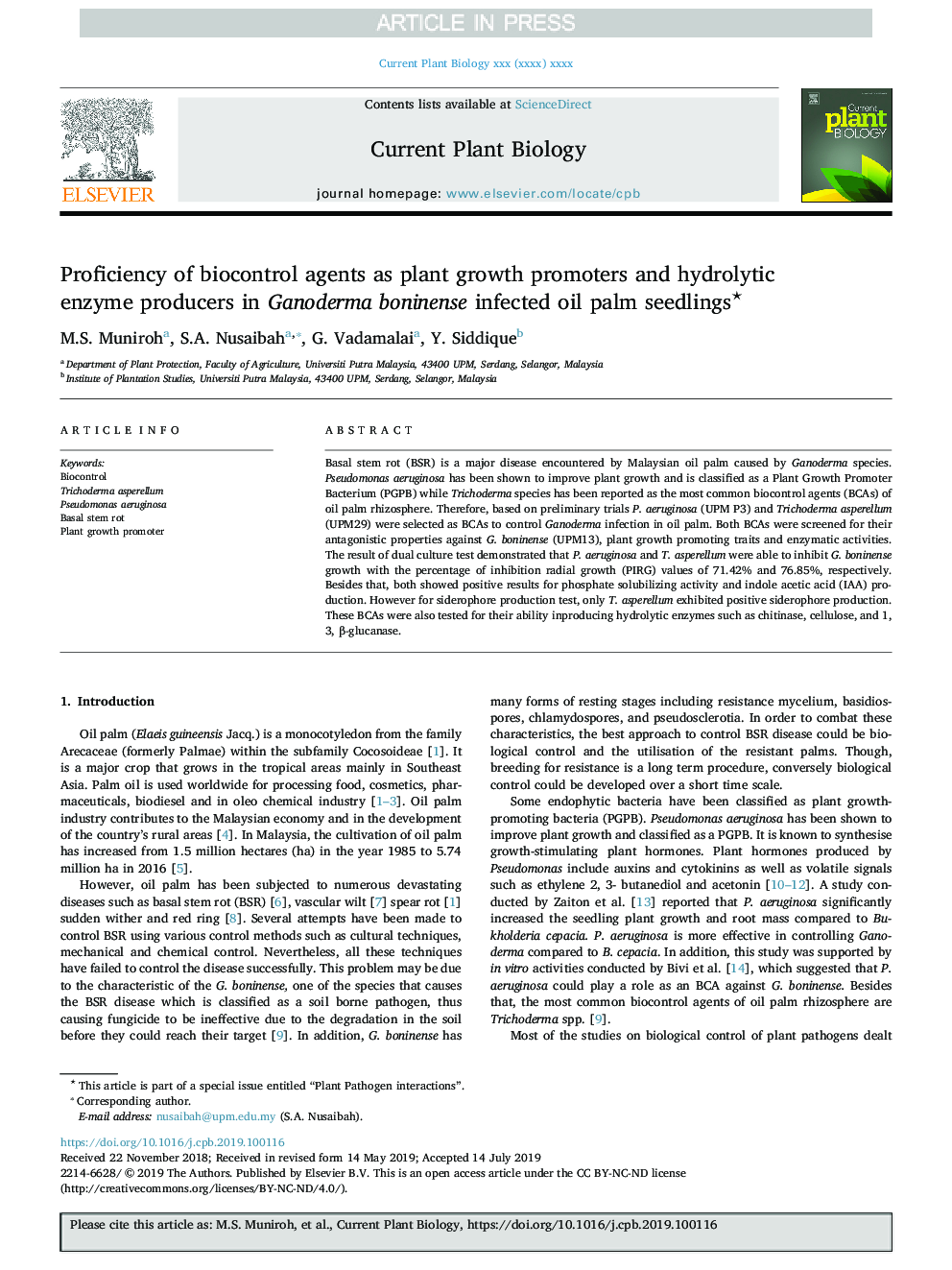| Article ID | Journal | Published Year | Pages | File Type |
|---|---|---|---|---|
| 13438827 | Current Plant Biology | 2019 | 9 Pages |
Abstract
Basal stem rot (BSR) is a major disease encountered by Malaysian oil palm caused by Ganoderma species. Pseudomonas aeruginosa has been shown to improve plant growth and is classified as a Plant Growth Promoter Bacterium (PGPB) while Trichoderma species has been reported as the most common biocontrol agents (BCAs) of oil palm rhizosphere. Therefore, based on preliminary trials P. aeruginosa (UPM P3) and Trichoderma asperellum (UPM29) were selected as BCAs to control Ganoderma infection in oil palm. Both BCAs were screened for their antagonistic properties against G. boninense (UPM13), plant growth promoting traits and enzymatic activities. The result of dual culture test demonstrated that P. aeruginosa and T. asperellum were able to inhibit G. boninense growth with the percentage of inhibition radial growth (PIRG) values of 71.42% and 76.85%, respectively. Besides that, both showed positive results for phosphate solubilizing activity and indole acetic acid (IAA) production. However for siderophore production test, only T. asperellum exhibited positive siderophore production. These BCAs were also tested for their ability inproducing hydrolytic enzymes such as chitinase, cellulose, and 1, 3, β-glucanase.
Related Topics
Physical Sciences and Engineering
Chemical Engineering
Bioengineering
Authors
M.S. Muniroh, S.A. Nusaibah, G. Vadamalai, Y. Siddique,
